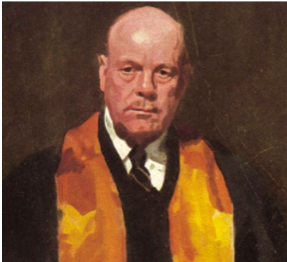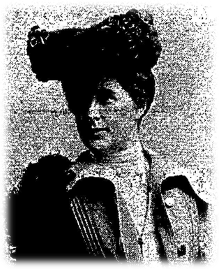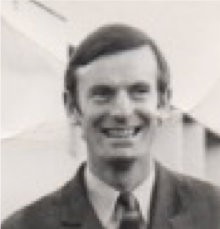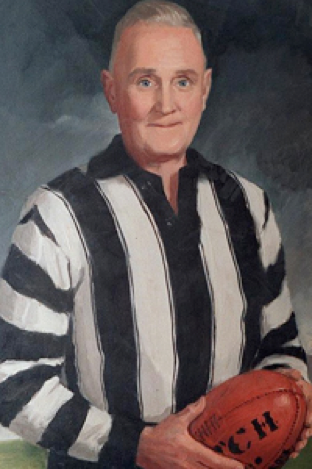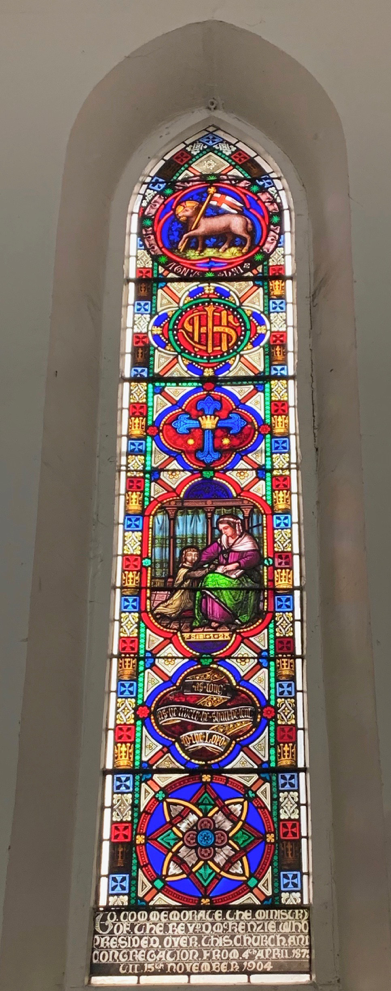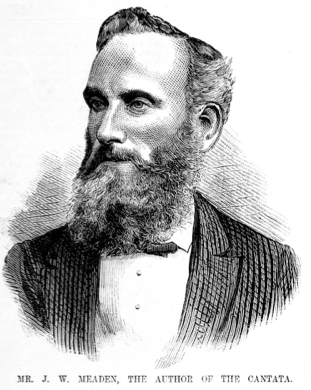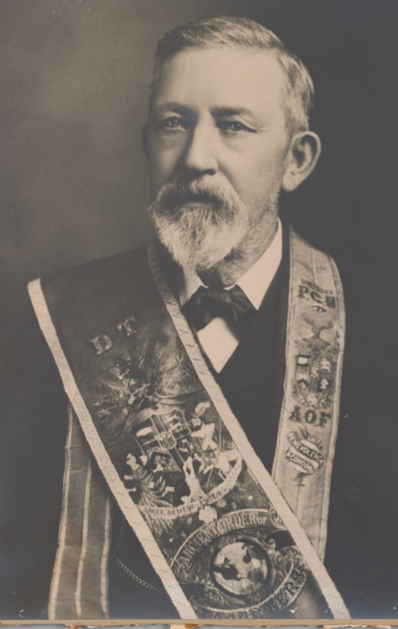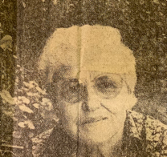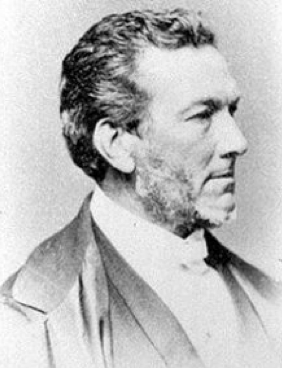Collingwood Notables Database
John Forbes Cock Mackenzie
1879-1970
Doctor, surgeon
Carlington Marston
c. 1834-1902
Chemist
Carlington George Edmund Marston came from Dublin. He started business as a chemist in 1858 or 1860, renting a shop in Smith Street somewhere between Otter and Stanley streets (numbered 192 at the time). Marston married in 1860 and promptly started a family. Around 1862 he moved to what was then numbered 152 Smith Street (south of Stanley Street). A photograph from this era shows a fine pair of brick two-storeyed shops with residences above, contrasting with what were then the more typical single storey timber shops of Smith Street in its early years.
Josephine McCormick
1858 - 1924
Gymnast, physical therapist
Anna Julia Josephine McCormick lived with her widowed mother and sister Ellen Maria (Ella) in St Heliers Street Abbotsford from the 1880s until her death in 1924. She became joint principal, with Harriet Elphinstone Dick, of the Ladies Gymnasium in the city. She specialised in medical gymnastics and massage for spinal and other deformities. According to her obituary in The Advocate:
The whole of Miss McCormick’s career was taken up in alleviating the bodily suffering of other people, and these included a great number of children whose spinal and similar complaints necessitated special treatment scientifically administered. [her] exceptional gifts had brought her into well-deserved prominence.
Georgiana Huntly McCrae
1804-1890
Artist, diarist, early settler
Georgiana was born in London, the natural daughter of George, marquis of Huntly, (afterwards fifth Duke of Gordon), and Jane Graham. She was well educated and a very talented artist, especially noted for her portraits and miniatures. Following her husband Andrew McCrae, she and her four sons arrived in Melbourne in March 1841. They leased land from Charles Nicholson, who had bought land in the first Collingwood land sales of 1838-39, and had a house built to Georgiana’s design. Her diary, although now known to be not either as forthright or original as once believed, gives us a marvellous insight into Melbourne life in the early years of settlement. In the few years that they resided at Mayfield, we hear of the children’s activities on their nine-acre block, the Aboriginals, the local flora, and riverbank neighbours, such as the Campbells who lived in Campbellfield, the Currs at St Helier’s, and James Simpson at Yarra Grange. The boys had an excellent tutor who interested his young charges in nature study as well as the academic pursuits. Agnes La Trobe, the governor’s daughter, joined the boys for lessons in 1843.
Andrew McCutcheon
1931-2017
Social activist, councillor and visionary politician
Andrew McCutcheon, a Methodist minister, architect and social activist, played a central role in the politics and development of the City of Collingwood in the 1960s and 1970s. He was a local councillor and mayor in Collingwood before becoming a prominent member of John Cain’s Victorian Labor government in the 1980s.
James Francis (Jock) McHale
1881-1953
Footballer, coach, brewery supervisor
James Francis McHale, better known as Jock, remains the most successful coach in the history of the VFL/AFL competition. He coached Collingwood for 38 years (1913-1950) in which time the Club won eight premierships – 1917, 1919, 1927-30, 1935-36. To Collingwood supporters he is still considered the ‘Prince of Coaches’. Over the years his fame as a coach reached legendary status as his love of the Club rubbed off on his players who were ready to ‘run through walls’ for Club and coach. He inspired his teams with an insatiable desire to win. He coached the famous ‘machine’ which won four premierships in a row.
Daniel McKenzie
c. 1833-1919
Minister
Scottish-born Daniel McKenzie was the incumbent of St George’s Presbyterian Church in Wellington Street Collingwood for 26 years and resided with his wife Helen and family at The Manse in Gold Street Clifton Hill. On first arriving in Australia he took up the ministry at the United Presbyterian Church in Geelong in 1868; during this time the United Presbyterian Church became incorporated with the Presbyterian Church of Victoria. He then went to Footscray in 1872, until in 1878 the congregation of St George’s requested him as their preferred minister.
John William Meaden
1840-1899
Draper, poet, temperance advocate
Towards the end of 1880 Melbourne residents were busy anticipating the greatest spectacle their city had yet experienced: the opening of the Melbourne International Exhibition. Cargoes had been arriving from all parts of the world and a grand exhibition hall was under construction. For the opening ceremony the exhibition commissioners specially commissioned a 'solemnly versed and composed cantata'. Public competitions, open to entrants from all the colonies, were held for both the lyrics and musical score. John Meaden, a draper and temperance lecturer from Collingwood, won first prize and 50 guineas for his composition Victoria in which the colony's 'dismal Past' is contrasted with its 'glorious Present’.
Rees Miller
1838-1916
Corn and hay merchant
Marion Miller
1913 - 2002
Community activist, councillor
Throughout her life Marion Miller was an ‘active citizen’, but especially in her later years as a Clifton Hill resident and Collingwood Councillor. She believed in the importance of democratic local government and took representing the individuals in her ward seriously. Her contributions included initiating the Collingwood Residents Association and working for the establishment of the Carringbush Library. It was for her contribution to the community and as a councillor that she received the Australian Centenary Medal posthumously on 9 April 2003.
Joseph John Moody
c. 1811-1881?
Town clerk
Moody was the first town clerk of the fledgling East Collingwood Council. Appointed shortly after council was established late in 1855, he received a salary of £200 per annum and served for five years. With his Freemasonry connections he was probably assured of success on his arrival in Victoria in December 1852 with his wife and four children, having left his home in Cheshire. As early as 1853 he was on the committee of the Second Collingwood Equitable Mutual Building Association and therefore had made the acquaintance of influential Collingwood resident Peter John Petherick who was the Secretary. Moody claimed a long involvement with municipal affairs in England, but the fact that one of the council factions was strongly dominated by Freemasons would have been the major factor in his appointment.

